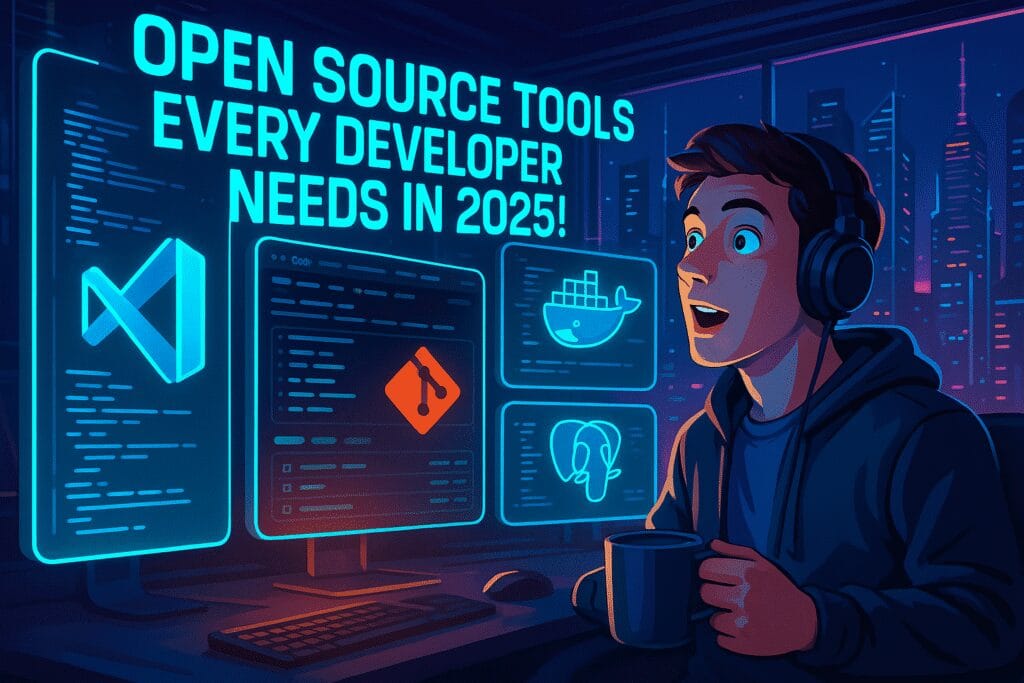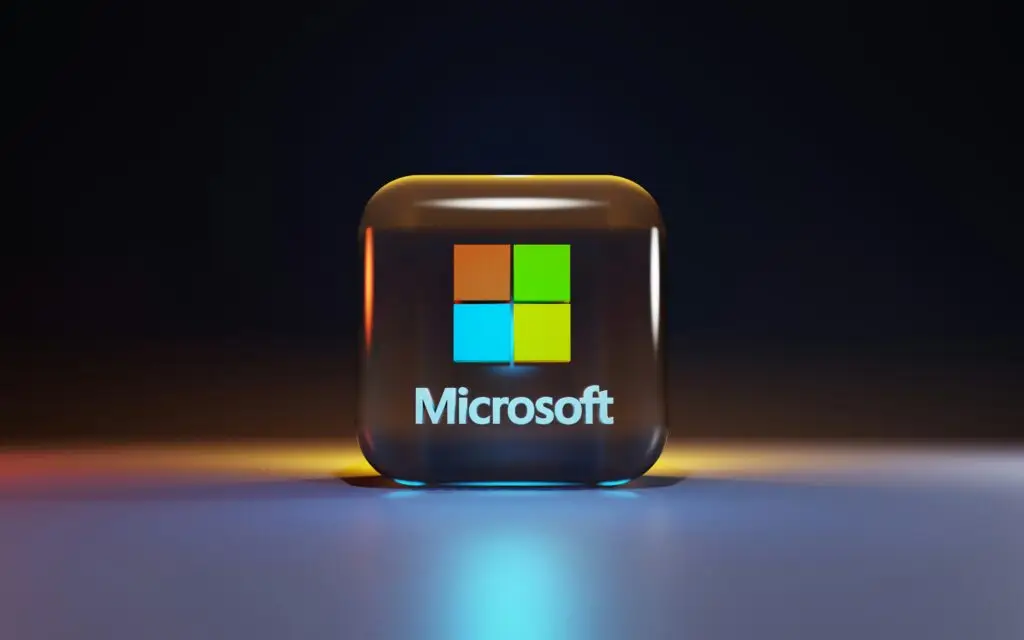Top Open-Source Tools for Developers in 2025
A couple of weeks ago, I was fixing a bug that refused to die.
It was 2 a.m., I had cold coffee in my cup, and the error logs looked like a crime scene.
Then I remembered something: half the tools I rely on every single day didn’t cost me a penny. They were open-source, built by people who just… like making cool stuff.
If you’re a developer in 2025, the right open-source tools can feel like a superpower.
They save you money, yes, but more than that—they give you freedom.
Why I Swear by Open-Source Tools in 2025
Here’s the thing: when you use open-source, you’re not just using “free” software.
You’re tapping into this giant, buzzing workshop where anyone can walk in, grab a wrench, and start improving things.
- Free but high quality: Not “free and flimsy”—free and better than paid half the time.
- Community energy: Bugs get squashed faster when thousands of people care.
- You’re in control: Want to tweak something? Go ahead—it’s your code now.
Git – The Lifesaver
I can’t imagine going back to a world without Git.
It’s basically a time machine for code. Mess something up? You can rewind like it never happened.
I still remember my first big Git mistake—pushed to the wrong branch. Panic. Heart racing. Then a quick git reset and boom—problem gone.
Get it here → git-scm.com (dofollow)
Why I love it: It saves my neck at least twice a month.
Pro tip: If you like structure, try GitLab. If you like massive communities, GitHub is your place.
Visual Studio Code – My Daily Desk
I’ve used a lot of editors over the years, but VS Code just… stuck.
Lightweight, but not so minimal that I’m begging for features.
The extension library? Dangerous. I’ve lost hours just browsing it.
Download it here → Visual Studio Code (dofollow)
It works for me. Because it bends my workflow,
Pro tip: Install Prettier and never think about code formatting again.
Docker & Podman – App Lunchboxes
Here’s my mental image: containers are lunchboxes for apps.
They keep everything tidy and ready to go, whether you’re at home, on a plane, or deploying to production.
- Docker: Big, friendly, and everywhere.
- Podman: Smaller footprint, more secure.
Read about Podman here → podman.io (nofollow)
Why I use them: Same app, same behavior, no “but it worked on my laptop!”
Pro tip: Podman’s worth learning if you’re handling sensitive projects.
PostgreSQL – The Data Brain I Trust
Postgres (yeah, we all shorten it) is my default database now.
I’ve run it for tiny side projects and apps serving thousands. It’s reliable and predictable—like a friend who always shows up on time.
Learn more → postgresql.org (dofollow)
Why it’s a keeper: It handles whatever you throw at it without drama.
Pro tip: Pair it with Django if you want to build a back end fast.
New Kids Worth Watching in 2025
I’m not all about the old guard—there are a few newcomers I’m really liking this year.
Cal.com – My Calendar Hack
I used to pay for Calendly. Then I found Cal.com, hosted it myself, and never looked back.
Same functionality, no monthly bill.
Why it’s great: I control my own data.
Pro tip: Freelancers, you’ll love it.
Payload CMS – Lego for Content
This one’s like a Lego set for your website’s content.
Headless, flexible, and not stuck in the WordPress mold.
Why I dig it: I can build exactly what I want without wrestling with themes.
Pro tip: Perfect with Next.js for blazing-fast sites.
How I Pick Tools (The Gut Check)
I keep it simple:
- Does it solve my problem?
- Is there a community behind it?
- Will it be around next year?
- Do I actually enjoy using it?
If a tool makes my workday better, it stays. If it slows me down, it’s gone—no matter how “popular” it is.
Quick FAQ
Are open-source tools always free?
Yes, but you might spend time learning them instead of money.
Are they safe?
Usually safer than closed-source, especially when lots of eyes are on the code.
Can beginners handle them?
Absolutely. Start with Git and VS Code—you’ll learn fast.
Wrapping It Up
The best open-source tools for developers in 2025 aren’t just free—they’re freedom.
They give you control, save you money, and connect you to a global community of makers.
Who knows? In a few years, it might be your tool that makes the list.





I?¦m now not sure the place you’re getting your information, however great topic. I must spend some time finding out much more or understanding more. Thank you for fantastic info I used to be on the lookout for this information for my mission.
Respect to post author, some wonderful entropy.